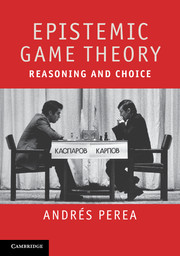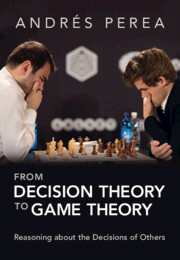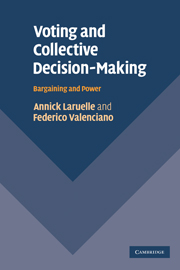Epistemic Game Theory
In everyday life we must often reach decisions while knowing that the outcome will not only depend on our own choice, but also on the choices of others. These situations are the focus of epistemic game theory. Unlike classical game theory, it explores how people may reason about their opponents before they make their final choice in a game. Packed with examples and practical problems based on stories from everyday life, this is the first textbook to explain the principles of epistemic game theory. Each chapter is dedicated to one particular, natural way of reasoning. The book then shows how each of these ways of reasoning will affect the final choices that can rationally be made and how these choices can be found by iterative procedures. Moreover, it does so in a way that uses elementary mathematics and does not presuppose any previous knowledge of game theory.
- The first textbook to explain the principles of epistemic game theory for an advanced undergraduate and postgraduate audience
- Uses many interesting examples and exercises to show how epistemic game theory can be applied to choices in everyday life
- Written in a non-technical way that presupposes no previous knowledge of game theory
Product details
July 2012Paperback
9781107401396
580 pages
244 × 173 × 28 mm
1.13kg
54 b/w illus. 117 tables
Available
Table of Contents
- Acknowledgements
- 1. Introduction
- Part I. Standard Beliefs in Static Games:
- 2. Belief in the opponents' rationality
- 3. Common belief in rationality
- 4. Simple belief hierarchies
- Part II. Lexicographic Beliefs in Static Games:
- 5. Primary belief in the opponent's rationality
- 6. Respecting the opponent's preferences
- 7. Assuming the opponent's rationality
- Part III. Conditional Beliefs in Dynamic Games:
- 8. Belief in the opponents' future rationality
- 9. Strong belief in the opponents' rationality
- Bibliography
- Index.




